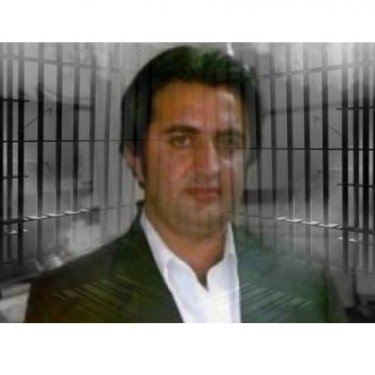Iranian blogger on hunger strike in protest against continued detention

Reporters Without Borders (RSF) is very worried about Sakhi Righi, an Iranian blogger who has been held for the past nine years and who has been on hunger strike for 26 days in protest against his prison conditions and the prison administration’s refusal to grant him a parole. RSF reminds Iran of its obligations as regards the treatment of prisoners.
Under Iranian law, convicted prisoners can be given a conditional release after completing a third of their sentence and Righi completed a third of his original 20-year sentence more than two years ago.
The prison authorities are not only refusing to release him but are also holding him in appalling conditions in Karon prison, in the southwestern city of Ahvaz. Although suffering from hypothyroidism, he is being denied medical care and, in the nine years he has been held, he has never been granted even a short-term parole, although that is also his right.
Furthermore, he is being held in a prison that is 1,600 km from Zahedan, his home town in the far east of Iran, where he was living when arrested in 2009 and where his family still lives. This limits visits by his family, who have not been able to visit him for the past seven months. And he has not been able to call his family for the past week.
“Why is Sakhi Righi being kept in prison although his health is worsening and he could legally be given a conditional release?” said Reza Moini, the head of RSF’s Iran/Afghanistan desk. “His detention is cruel and has gone on for too long. We are extremely concerned for his health. We point out that under the International Covenant on Civil and Political Rights, to which Iran is a party, depriving prisoners of medical care can be regarded as violation of the ban on torture and cruel, inhuman or degrading treatment.”
Righi was arrested on 18 June 2009 for posting articles on his Balochistan-s blog that were critical of the situation in the Zahedan region and that month’s controversial presidential election. After torture was used to extract a confession, he was sentenced to 20 years in prison – an unprecedentedly long term for a blogger – on charges of “publishing false information” and “activities against national security.” The jail term was eventually reduced to ten years under article 134 of the new Islamic penal code, under which a person convicted on several criminal charges serves only the longest sentence.
Aside from his critical blog posts, Righi’s main crime was to have the same surname as Abdolmalek Righi, the head of an armed opposition group in the region who was eventually hanged on 20 June 2010.
Ranked 164th out of 180 countries in RSF’s 2018 World Press Freedom Index, Iran is one of the world’s five biggest jailers of journalists and citizen-journalists, with a total of 30 currently held.



